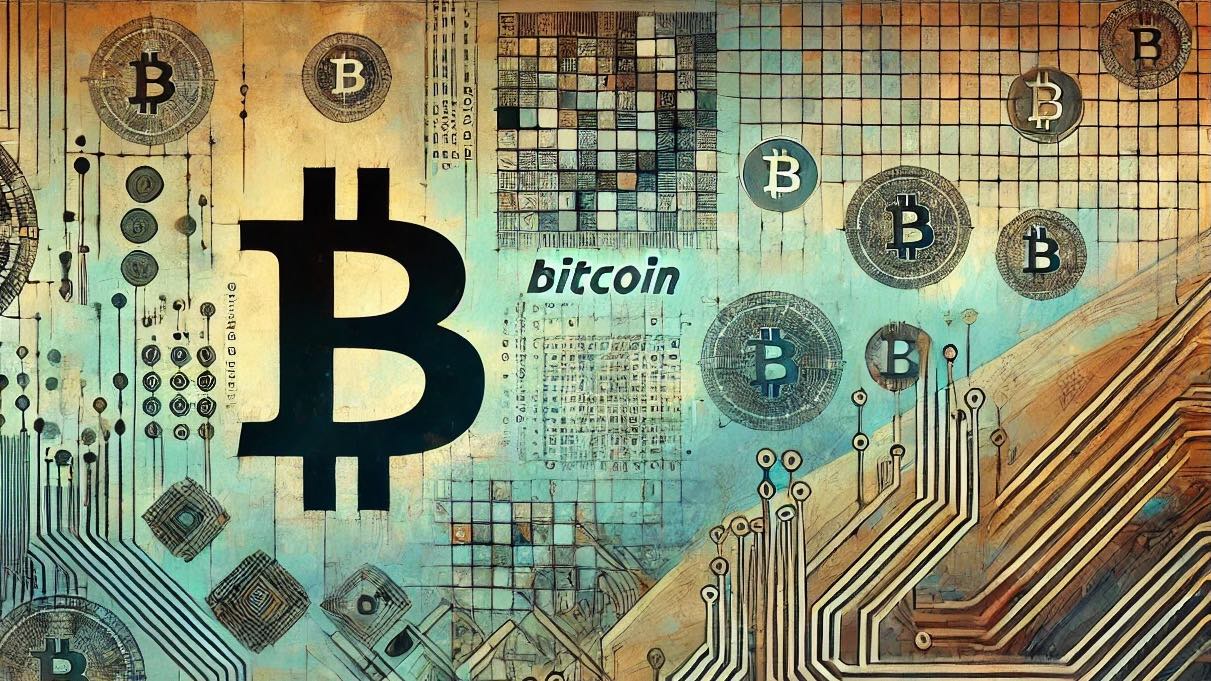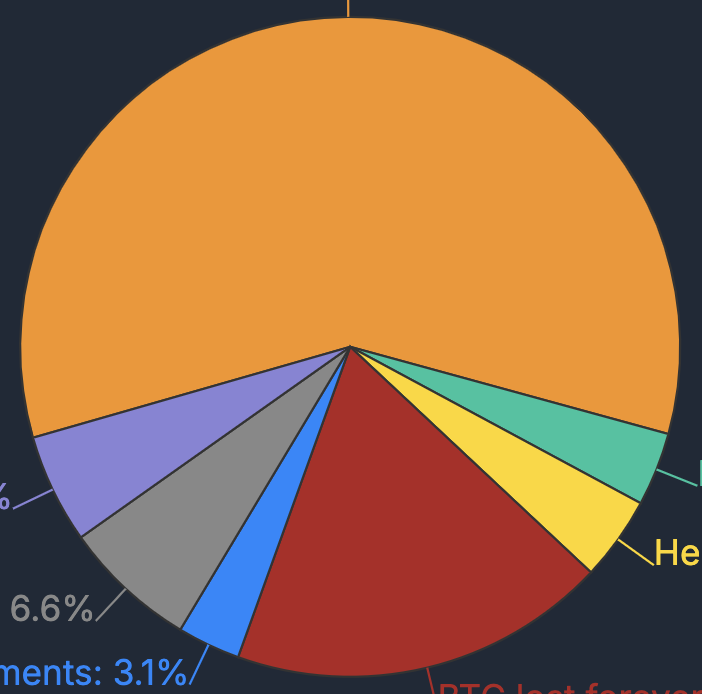How to Trade Bitcoin in Japan in 2025: A Practical Guide

Bitcoin trading in Japan has grown significantly, driven by increased adoption, clearer regulations, and an active community. If you're interested in trading Bitcoin in Japan this year, it's essential to know the steps, tools, and legal framework involved. This guide will take you through a step-by-step process to get started and trade Bitcoin effectively in 2025.
Please note that this is only a general guide and not financial advice. Cryptocurrency trading involves risks, and it's essential to do your research and understand the market before investing.
1. Understand Japan's Regulatory Environment
Japan is one of the most crypto-friendly countries, with clear regulations that ensure a safe trading environment for individuals. The Financial Services Agency (FSA) oversees the licensing and regulation of cryptocurrency exchanges. Before trading, it's crucial to select an exchange that is registered with the FSA to ensure compliance and protection for your funds.
2. Choose a Reliable Exchange
There are several well-established exchanges that cater specifically to Japanese traders. Here are some popular ones:
-
Binance Japan
Recently launched in Japan with full FSA compliance, Binance Japan offers a well-rounded experience for both beginners and experienced traders. It features an easy-to-use mobile app, low trading fees, and a broad selection of cryptocurrencies for trading. Binance Japan also supports staking and savings products, allowing users to earn passive income on their holdings.
- Fees: Spot trading fees start at 0.1%.
- Supported Assets: Over 350 cryptocurrencies.
- Regulation and Licensing: Fully compliant with FSA regulations.
- JPY Deposit Methods: Bank transfers, credit cards, and other common payment methods.
-
bitFlyer
One of Japan's longest-standing cryptocurrency exchanges, bitFlyer is fully compliant with the FSA and offers an easy-to-use interface for both beginners and advanced traders. It provides a high level of security and supports a wide range of cryptocurrencies.
- Fees: Spot trading fees start at 0.15%.
- Supported Assets: Bitcoin and various altcoins.
- Regulation and Licensing: Registered with the FSA.
- JPY Deposit Methods: Bank transfers and credit card payments.
-
bitbank
bitbank is a popular exchange in Japan known for its deep liquidity and professional-grade trading tools. It offers a strong selection of cryptocurrencies and is favored by serious traders.
- Fees: Maker fees at -0.02%, taker fees at 0.12%.
- Supported Assets: Various major cryptocurrencies including Bitcoin and Ethereum.
- Regulation and Licensing: Fully compliant with FSA regulations.
- JPY Deposit Methods: Bank transfers.
Before you sign up, make sure to verify the exchange's fee structure, available cryptocurrencies, and trading limits.
3. Set Up Your Account
To start trading, you need to set up an account on a registered exchange. Here are the typical steps:
- Identity Verification (KYC): Japan requires all exchanges to perform identity checks. Prepare your residence card or My Number card for verification.
- Enable Two-Factor Authentication (2FA): For added security, enable 2FA on your account.
4. Deposit Funds
Once your account is set up, deposit Japanese yen via a bank transfer or other supported methods. Some exchanges also accept credit cards, but be mindful of higher fees.
Advice: Please use a bank account which is not your primary bank account, as many banks may mark transfers to crypto exchanges as suspicious and lock your internet banking access until you visit the branch. To prevent any inconveniences by losing internet access to your primary bank account, it's recommended to use a non-primary account.
5. Make Your First Trade
Now that you have funds in your account, you can place your first trade. You can choose between:
- Spot Trading: Buying Bitcoin at current market prices.
- Limit Orders: Setting a price at which you want to buy or sell Bitcoin. This option is suitable if you have a specific entry or exit price in mind.
6. Consider Using a Wallet (Not for beginners)
Keeping your Bitcoin on an exchange is convenient for trading, but for better security, it is recommended to use a personal wallet. There are two main types of wallets: hardware wallets and software wallets. Additionally, understanding the difference between self-custody and storing crypto on exchanges is crucial.
Advice: This step is only recommended for advanced users. For beginners, it's absolutely okay to keep your Bitcoin on the exchange until you're comfortable with self-custody wallets. Self-custody wallets require you to keep your seed phrase safe and secure, as losing it means losing access to your Bitcoin.
7. Tax Implications
Bitcoin gains are considered miscellaneous income in Japan. You will need to declare your trading profits as part of your yearly tax filings. The tax rate depends on your total income, which can range from 5% to 45%. Keeping detailed records of your trades will make tax reporting easier. For easy calculation of realized gains, you can use tools like Cryptact.
8. Tips for Successful Trading
- Stay Informed: Keep track of Bitcoin news and market trends. Websites like CoinPost offer updates in Japanese, while BTC.BLOG provides insights for the Global market primarily in English.
- Start Small: If you're a beginner, start with a smaller investment to get a feel for the market.
- Use Tools: Utilize charting tools like TradingView to analyze market trends and make informed decisions.
9. Japanese Exchanges That Have Suffered a Hack
Despite the strong regulatory framework in Japan, several Japanese cryptocurrency exchanges have suffered from hacking incidents in the past. Here are some notable cases:
-
Mt. Gox
Once the largest Bitcoin exchange globally, Mt. Gox experienced a massive hack in 2014, losing approximately 850,000 BTC. This incident highlighted significant vulnerabilities in crypto exchanges and led to increased regulation in Japan to better protect investors.
-
Coincheck
In 2018, Coincheck was hacked, resulting in the theft of approximately $530 million worth of NEM tokens. This was one of the largest crypto hacks in history. Since then, Coincheck has improved its security measures and is now operating under stricter regulations.
-
Bitpoint
In 2019, Bitpoint was hacked, resulting in losses of around $32 million in various cryptocurrencies. The hack affected both customer and company funds, leading to a temporary suspension of services while security improvements were made.
-
DMM Bitcoin
On May 30, 2024, DMM Bitcoin suffered a significant hack, resulting in the loss of 4,502.9 BTC, valued at approximately $305 million. The hack targeted the exchange's private key, leading to unauthorized access and theft of user funds. Following the attack, DMM Bitcoin temporarily suspended withdrawals, new account registrations, and restricted leveraged trading. The exchange has pledged to fully compensate affected users by procuring an equivalent amount of Bitcoin. DMM Bitcoin also implemented additional security measures to prevent future breaches.
-
Bybit
In February 2025, Bybit suffered one of the largest hacks in crypto history, with hackers stealing digital tokens worth approximately $1.5 billion. According to Bybit CEO Ben Zhou, multiple cryptocurrencies, including Ether (ETH), were taken from a “cold wallet” — usually stored offline for enhanced security. Blockchain research firm Elliptic reported that the stolen amount exceeded twice the size of the previous biggest crypto hack, describing it as “almost certainly the single largest known theft of any kind in all time.”
Conclusion
By staying informed about Japan’s regulatory environment, applying strong security measures in light of past hacks, and maintaining diligent tax and trading practices, you can navigate the Japanese Bitcoin market in 2025 with confidence and success.




































